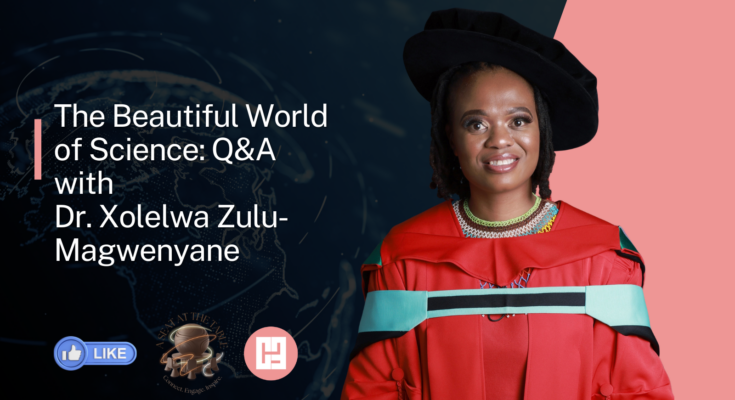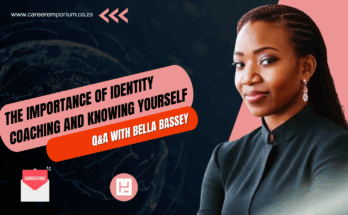When I was a MC at the Seat at the Table event, I kept seeing this one person who was charismatic in the crowd. This person was actively listening and reacting to everything that was happening at the event. Later on, the same person took the stage as a panelist and dropped some serious gems about science. That person was Dr. Xolelwa Zulu-Magwenyane. You can definitely feel that energy in this Q&A:

Sibusiso Nkosi: When did you realise your love for science?
Dr. Xolelwa Zulu-Magwenyane: It would have been around the second year of high school, modern-day Grade 9. We used to have Physical Science practicals once a week and alternating between Physics and Chemistry. I used to tolerate the Physics practicals and was always disappointed at the end of each Chemistry session. Even though we had limited career guidance, I knew I would like to pursue Chemistry further, and I did.
Sibusiso Nkosi: What is it about science that you really love?
Dr. Xolelwa Zulu-Magwenyane: Science is the pursuit of knowledge and understanding of the world around us at a molecular level. It is a systematic approach to inquiry that has led to incredible breakthroughs and innovations. I admire the curiosity, rigor, and collaboration inherent in scientific exploration. I am motivated that at the core of societal challenges, be it poverty, climate change, healthcare there is a potential scientific approach and solution that can be scaled to address most of these challenges, provided there are enabling support mechanisms to scientific searches.
Sibusiso Nkosi: In your view, what does the participation of black women look like in science?
Dr. Xolelwa Zulu-Magwenyane: The participation of Black women in science is a non-negotiable essential for progress and equitable society. It involves creating an inclusive environment where Black women scientists are intentionally supported, valued, and empowered to contribute their unique perspectives and expertise. This includes increasing representation in STEM fields, addressing systemic biases, and providing mentorship and opportunities for growth. This takes deliberate leadership that considers that exclusion of Black Women from STEM was by design. To reverse the severe impact of that, it would the same vigor if not more, to deliberately include black women in the entire STEM value-chain from researchers to decision-makers on investment decisions.
Sibusiso Nkosi: There is this perception that science is difficult and people stay away from it. Where do you think that perception comes from?
Dr. Xolelwa Zulu-Magwenyane: The perception that science is difficult can stem from several factors:
1. Complex terminology: Scientific concepts often involve specialised language that can be intimidating and abstract in most cases. It requires thinking and processing these concepts in ways that translate the theoretical into practical.
2. Lack of representation: If people do not see individuals like themselves in science, it can create a sense of unbelonging. The role of mentorship on a massive scale and supporting young talent can circumvent this. Each one teaches one until we have normalised career choices in STEM.
3. Negative experiences: Previous negative experiences with science education can deter people from pursuing it further. This may include lack of access to physical infrastructure to lack of teaching
Sibusiso Nkosi: What do you want people to know about the world of science?
Dr. Xolelwa Zulu-Magwenyane: The world of science is for everyone, girls and boys, women and men alike. It is a tool for understanding the world, solving problems, and improving lives. It is also a collaborative and creative endeavor that offers endless opportunities for exploration, discovery, and competitiveness for our nations. I want people to see science as a source of wonder, inspiration, and empowerment.
Do not forget to subscribe to our newsletter to have any new article sent to you directly! Sign up for free.




